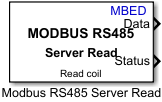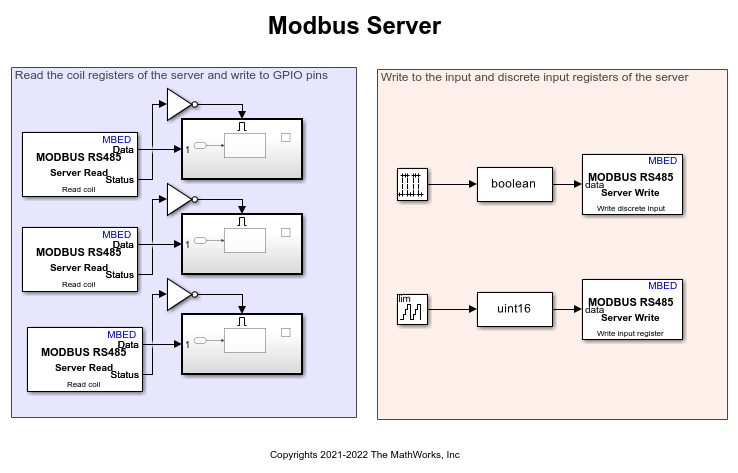Modbus RS485 Server Read
Server device reads data from the server device register over RS485 network
Since R2021b
Libraries:
Embedded Coder Support Package for STMicroelectronics STM32 Processors /
STM32F746G-Discovery
Embedded Coder Support Package for STMicroelectronics STM32 Processors /
STM32F769I-Discovery
Embedded Coder Support Package for STMicroelectronics STM32 Processors /
STM32L475VG-Discovery (B-L475E-IOT01A)
Simulink Coder Support Package for STMicroelectronics Nucleo Boards /
Common
Description
In the Modbus RS485 Server Read block, the server device reads data from its registers. The server can read data only from one register per read operation.
Simulink® Coder™ Support Package for STMicroelectronics® Nucleo Boards and Embedded Coder® Support Package for STMicroelectronics Discovery Boards supports the Modbus® communication protocol over the RS485 network. Each device on the RS485 network is referenced by a unique 8-bit address or identifier.
This table categories the server registers referenced by the Modbus server device.
| Register Type | Register Size |
|---|---|
| Coil | 1-bit |
| Discrete Input | 1-bit |
| Holding Register | 16-bit |
| Input Register | 16-bit |
The server can perform either a read or a write operation on its registers.
Examples
Ports
Output
Parameters
Extended Capabilities
Version History
Introduced in R2021b

